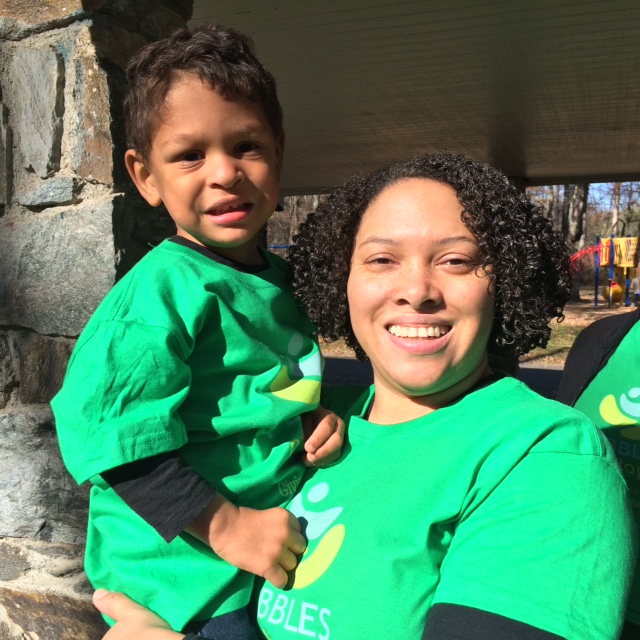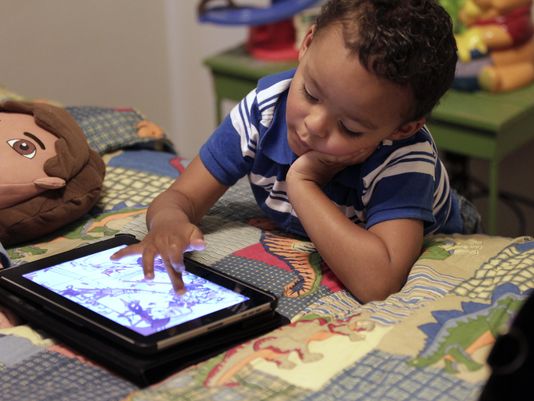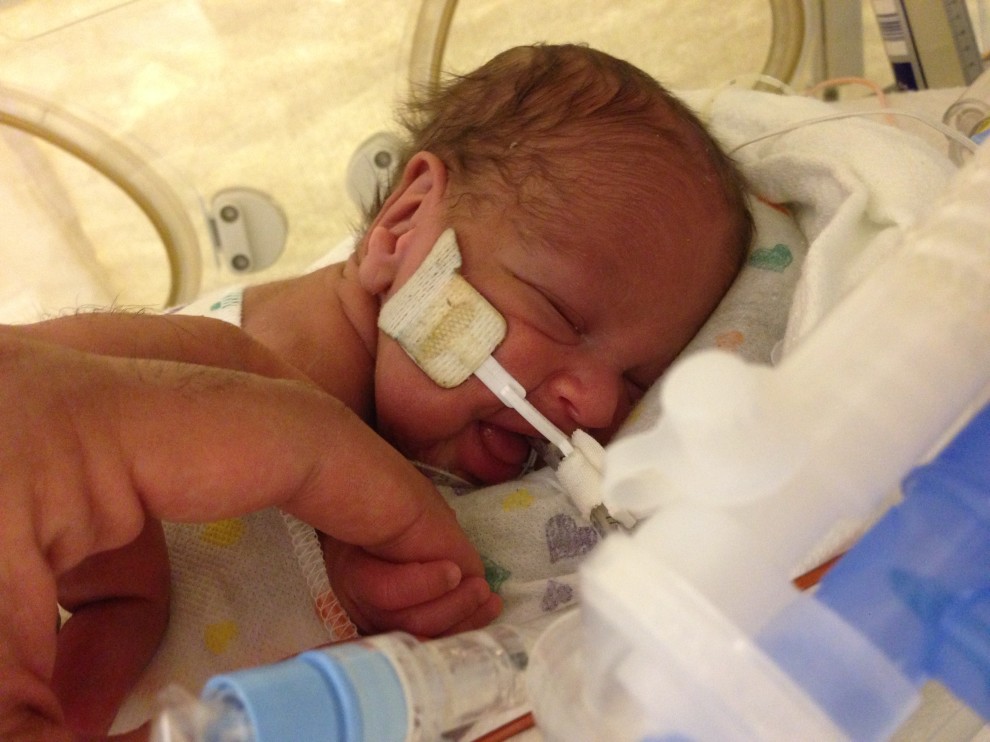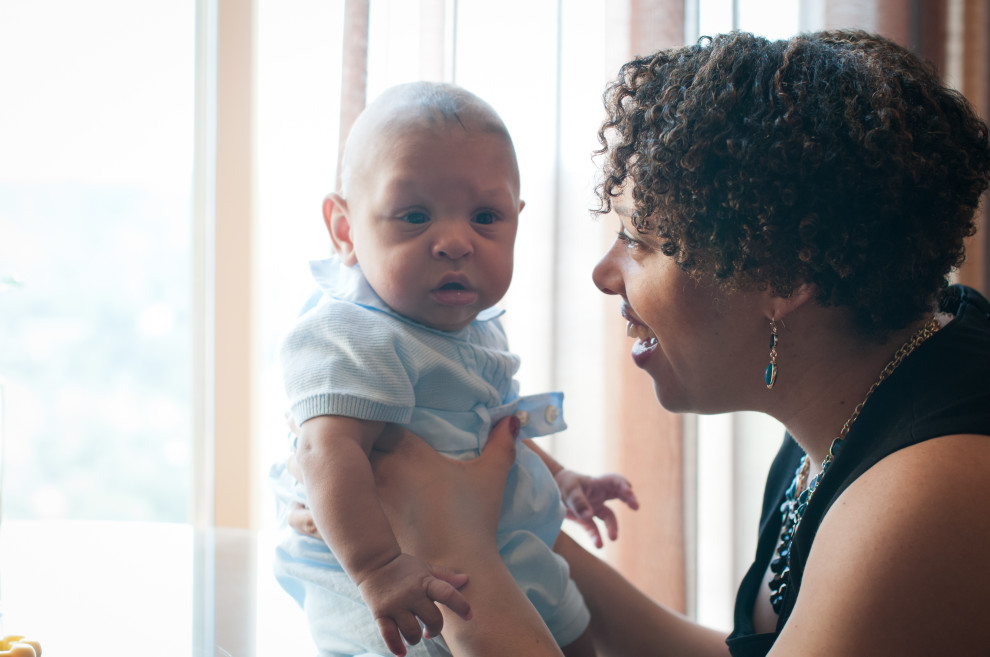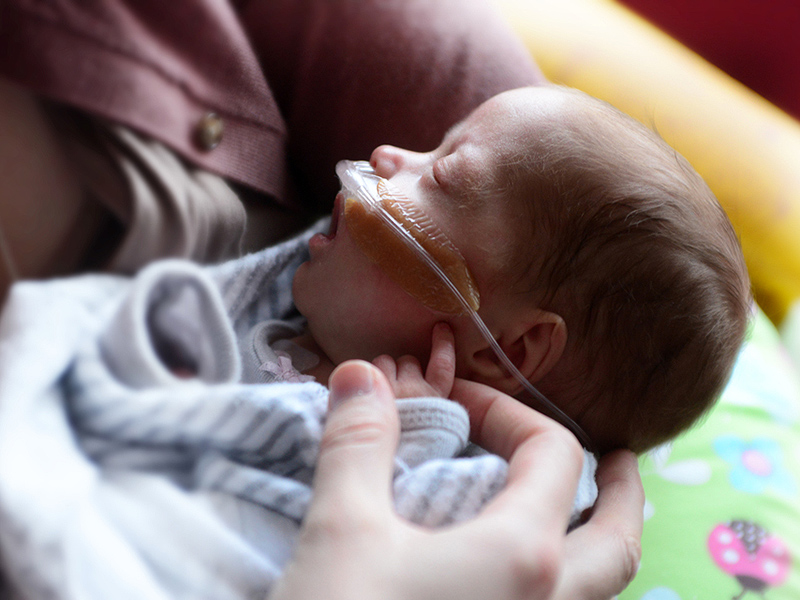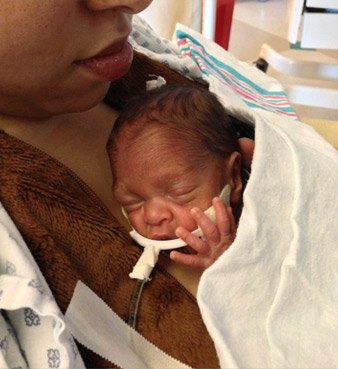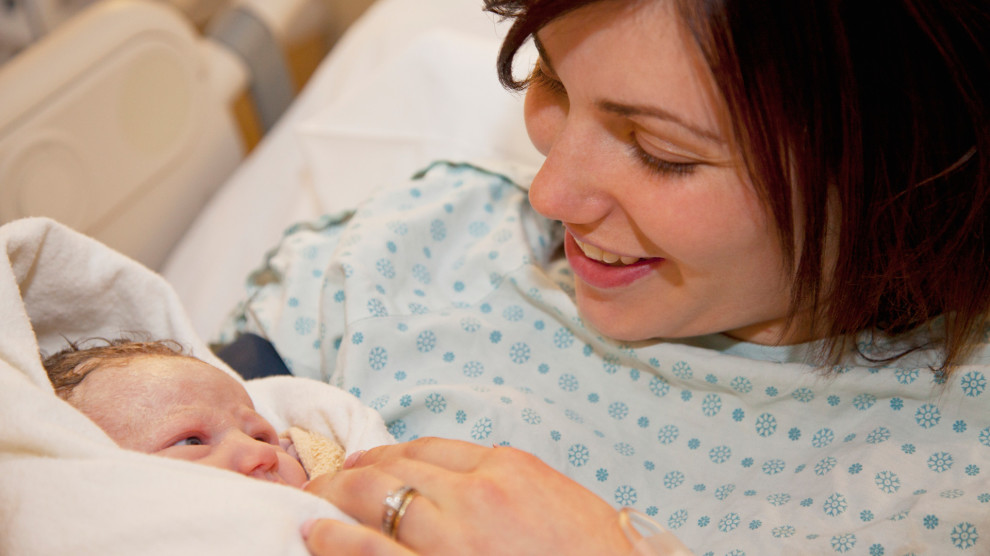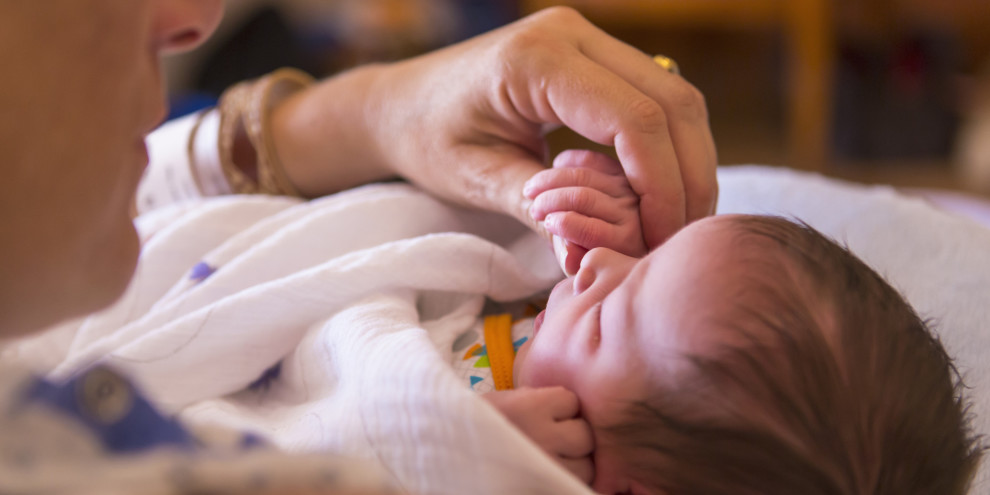The Preemie Experience Doesn’t End After the NICU
By Cheryl Chotrani
The day my son came home from the NICU, 140 days after his birth, was most certainly the happiest (and most overwhelming) day of my life. His time in the hospital left me emotionally drained as I watched him fight for his life every day. I anxiously awaited every milestone that would bring him closer to home. When he was discharged after a nearly five month stay, I was ready to move forward with starting some semblance of a “normal” life with my family and putting the NICU experience behind us.
Little did I know, the NICU was just the beginning of my son’s experience with prematurity. Now, almost four years later, my son still receives weekly physical and speech therapy, has difficulty with coordination and balance, and struggles with body awareness to the point that potty training seems like an impossible feat. Some of these issues are things he’ll likely be dealing with for most of his life.
I realize that these challenges are minor compared to what many other preemies face, and pale in comparison to the prognosis I was given when my son was first born. I am extremely grateful for that. But since my son appears to be perfectly healthy, it can be difficult explaining to his family, friends and teachers why he still needs extra support and attention. Many who have not experienced or been exposed to premature birth may think that the prematurity journey ends once the baby comes home from the hospital. But, the reality is, many preemies face long-term challenges as a result of their early birth. On top that, parents often need time to recover from the NICU experience themselves.
Here are a just a few of the ways in which my son’s prematurity has affected my family after the NICU:
Never-ending appointment schedule
When my son first came home, he saw five different specialists and two therapists, in addition to his pediatrician, to monitor his lungs, eyes, brain, bones and overall development. All of this added up to a schedule of 5-6 medical appointments each week. While his schedule of doctor’s appointment is much less intense now than it was when he first came home, he still maintains a heavy schedule of therapy and physical activities designed to help him with his speech and gross motor development. In addition to the time commitment involved in taking my son to these appointments, there is also the added expense for gas, copays and therapy sessions not covered by insurance.
Coordination difficulties
All preemies, particularly those born at earlier gestations, are at risk for developmental delays and learning challenges as they grow older. My son continues to struggle with speech, coordination and body awareness. With therapy, he is making great progress in all of these areas, but is still unable to communicate as effectively as his peers and finds it difficult to keep up with other kids on the playground. I can accept the fact that he is likely not destined to become a star athlete, but my primary concern is how his challenges with balance and overall clumsiness will impact his self-esteem and ability to participate in physical activities with other children as he progresses through school.
Ongoing emotional impact
In addition to the challenges preemies face as a result of their prematurity, parents are often dealing with the emotional aftermath of the NICU experience for years afterwards. Many NICU parents struggle with post-traumatic stress disorder (PTSD), which does not always manifest itself right away. Sometimes, PTSD symptoms may start or recur months or years after the initial trauma event. As for me, while I was never diagnosed with PTSD, I continue to be extra cautious when it comes to my son’s safety as there remains an unshakeable fear that he could somehow still be taken away from me. That fear has also spilled over into other areas of my life as a result of a heightened sense of how fragile life can be.
These are all challenges that my family continues to deal with despite the fact that my son is healthy and avoided many of the serious complications often associated with prematurity. Many preemie parents experience much worse. This underscores the importance of continued support and resources for NICU families well after discharge, even into the preschool and elementary school years. State-run early intervention programs are critically important and help to address some of these needs, but often services are not available beyond the first 2-3 years of life and generally do not address all of the medical, emotional or financial challenges affecting the child or the family. So, if you have never had a preemie, but have a family member, friend, co-worker or student who experienced premature birth or is a preemie themselves, take some time to understand why they might still need your support well after the NICU journey is over.

